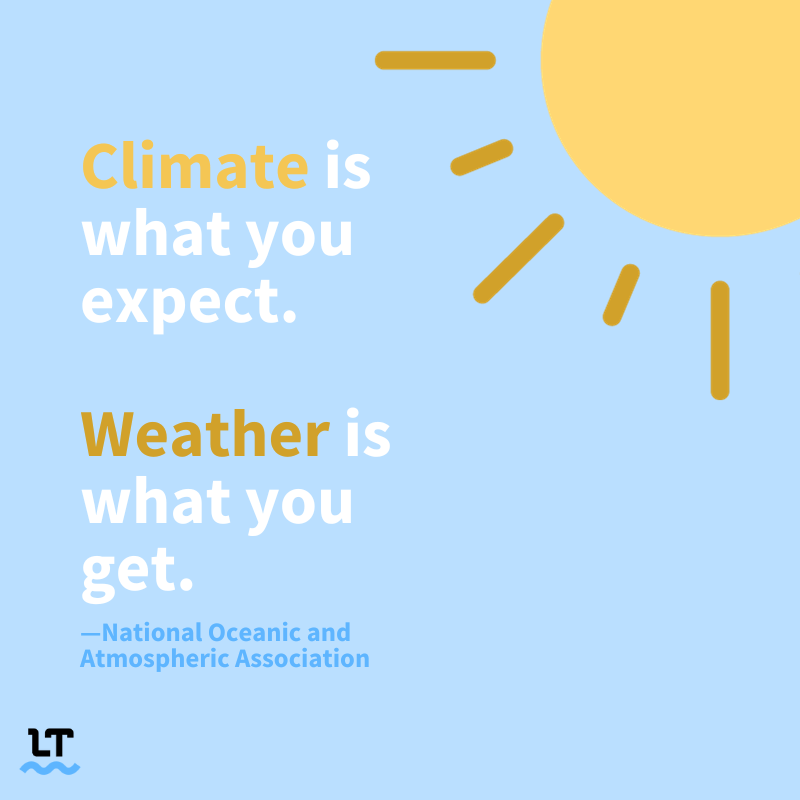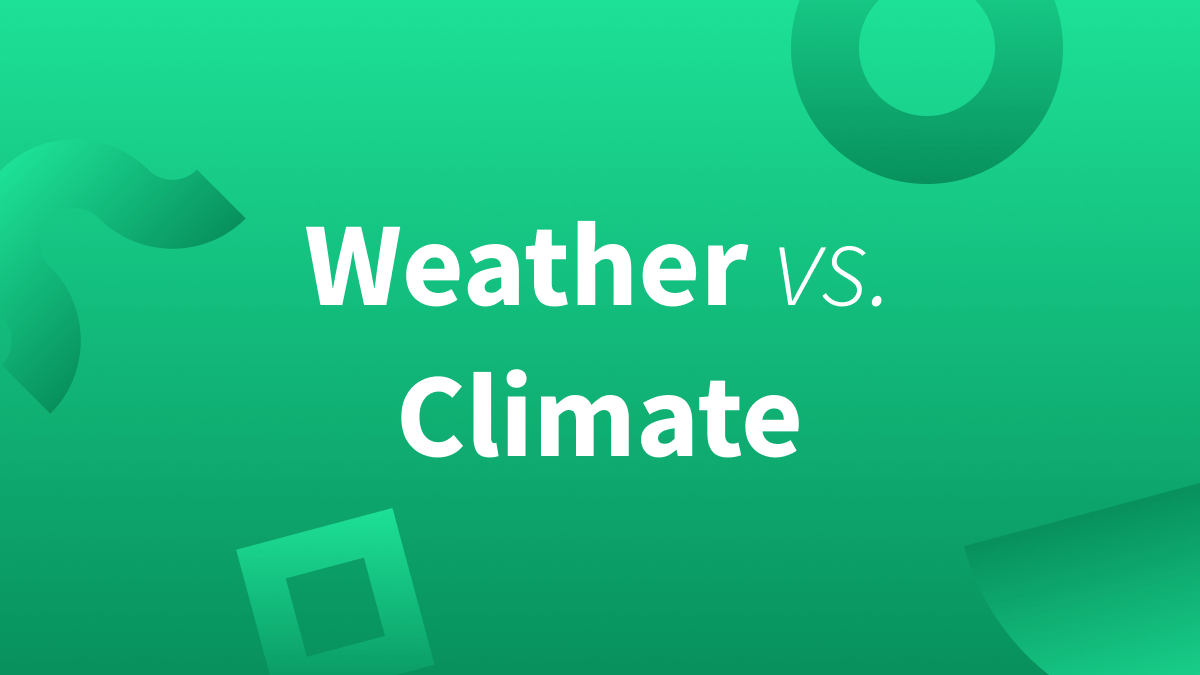Quick Summary
Weather refers to the “short-term, day-to-day conditions of the lower atmosphere.” You can describe the weather as rainy, hot, cold, humid, dry, etc. Climate is the “average of weather patterns over a long time, usually at least thirty years.”
- She checked the weather before we went hiking because we didn’t want to get caught in the rain.
- I wrote a thesis comparing the climate of the Pleistocene and Holocene eras.
When initiating small talk with someone, you don’t say, “Lovely climate we’re having.” Similarly, when discussing the earth’s fluctuating average temperatures, you wouldn’t say, “Weather change is a serious problem.” That’s because, although related in meaning, the words weather and climate are not always interchangeable.
Below, we’ll thoroughly explain the difference between weather and climate, so you can confidently use these terms.
What Is “Weather”?
Weather refers to the “short-term changes of the lower atmosphere in specific areas.” Simply put, weather is the day-to-day conditions that account for precipitation, temperatures, humidity, wind direction, wind speed, and so on. The weather varies greatly depending on the geographical location and time of year. For example, winter in Miami differs greatly from winter in Berlin. Furthermore, weather can change considerably within a short amount of time. Ireland, for instance, is known for the fact that you can experience the four seasons in one day.
Keep in mind that when referring to the outside temperature and conditions, the correct spelling is weather, not whether.
I was going to go to the pool today, but the weather turned, and it started raining out of nowhere.
My mom always checks the weather before she goes outside to run errands.
People think I’m strange, but I truly enjoy the winter because I love cold weather.
Common adjectives that can describe the weather include:
- Breezy
- Cloudy
- Cold
- Drizzling
- Freezing
- Hot
- Rainy
- Scorching
- Snowy
- Sunny
- Windy
While weather refers to the short-term atmospheric state, climate is the average of the weather conditions over a long period of time. We’ll elaborate in the following section.
What Does “Under the Weather” Mean?
Under the weather is an English idiom that is akin to saying “feeling ill or unwell.”
- Sorry, I can’t go to work today because I’m feeling a bit under the weather.
What Is “Climate”?
Climate refers to the “average weather patterns in a specific area over long periods of time, usually thirty years or more.” In other words, it is the expected weather based on extensive periods of certain atmospheric conditions.
For instance, the climate in South Florida is classified as tropical, meaning it has sunny and warm winters but humid, hot, and long summers. Minnesota, on the other hand, has a humid continental climate, meaning it has hot summers but long, frigid winters. Knowing the climate can help us anticipate the weather conditions during certain seasons.

I wrote a thesis discussing whether humans are to blame for climate change or if we’re simply experiencing expected variations in atmospheric patterns.
Jordan said he had to leave Maine and live somewhere with a warmer climate.
The most difficult thing for them to get used to when they moved was the drastic difference in climate.
Common adjectives that describe the climate include:
- Arid
- Dry
- Humid
- Maritime
- Mountainous
- Polar
- Subtropical
- Temperate
- Tropical
Writing Up a Storm
Remember, climate changes over a long period of time, but weather can change day by day or even minute by minute.
Speaking of weather and climate, if you’d like to keep your feet dry from grammar, spelling, and punctuation mistakes as you write up a storm, make sure to trust LanguageTool as your writing assistant. Come rain or shine, this innovative, multilingual tool brightens up your work by suggesting stylistic improvements and optimizing tone and word choice.
Writing is a breeze when you use LanguageTool. Try it today!



